I have a problem when IN clause contains too many values. Consider this query
EXPLAIN
SELECT DISTINCT t.entry_id , t.sticky , wd.field_id_104 , t.title
FROM exp_channel_titles AS t
LEFT JOIN exp_channels ON t.channel_id = exp_channels.channel_id
LEFT JOIN exp_channel_data AS wd ON t.entry_id = wd.entry_id
LEFT JOIN exp_members AS m ON m.member_id = t.author_id
INNER JOIN exp_category_posts ON t.entry_id = exp_category_posts.entry_id
INNER JOIN exp_categories ON exp_category_posts.cat_id = exp_categories.cat_id
WHERE t.entry_id !=''
AND t.site_id IN ('1')
AND t.entry_date < 1610109517
AND (t.expiration_date = 0 OR t.expiration_date > 1610109517)
AND t.entry_id IN ('0','649','650','651','652','653','654','655')
;
if there are few values output is following, which is ok

but if IN ('0','649','650','651','652','653','654','655', thousand values)
query run about 1 minute and explain change to this
how to fix that?
UPDATE: range_optimizer_max_mem_size had already set to 0 and isn't issue

